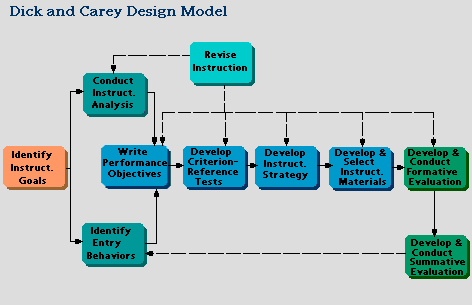98909 Instructional Design in Adult Education
Tuesday, 10 December 2013
Saturday, 7 December 2013
Assignment 4
Assignment 4: Reflection
In this last assignment you are asked to reflect on your learning in this course. in preparation for this paper you will need to analyze the process of the creation of your course. The paper is expected to address two key aspects or issues: Your learning of theory and your learning of practice.
Format:
4-6 pages, double spaced, times new roman, 12 pt font.
Submitted through dropbox.
As outlined in the course outline this is to be a thoughtful and reasoned document (but does not need to follow APA - this is a reflection, not a formal essay), clearly organized with evidence provided as needed. Some areas of reflection might include (but are not limited to) identifying the challenged of instructional design, the rational for thechoices you made in design, what you would change given what you learned from the process and how you think your process reflects current trends in instructional design.
In this last assignment you are asked to reflect on your learning in this course. in preparation for this paper you will need to analyze the process of the creation of your course. The paper is expected to address two key aspects or issues: Your learning of theory and your learning of practice.
Format:
4-6 pages, double spaced, times new roman, 12 pt font.
Submitted through dropbox.
As outlined in the course outline this is to be a thoughtful and reasoned document (but does not need to follow APA - this is a reflection, not a formal essay), clearly organized with evidence provided as needed. Some areas of reflection might include (but are not limited to) identifying the challenged of instructional design, the rational for thechoices you made in design, what you would change given what you learned from the process and how you think your process reflects current trends in instructional design.
Saturday, 26 October 2013
wk 6 - Constructivist Models
- Constructivism is a theory of knowledge explaining it as being developed in the human being when information comes into contact with existing knowledge that had been generated from previous experiences.
- It has roots in cognitive psychology and biology and an approach to education that lays emphasis on the ways knowledge is created while exploring the world.
- Knowledge is meaning we make from experience, transforming our world from chaos to order.
- Ernst von Glasersfeld describes constructivism as “a theory of knowledge with roots in philosophy, psychology, and cybernetics”
Situated cognition:
- learning as it normally occurs is a function of the activity, context and culture in which it occurs (i.e., it is situated).
Anchored instruction
- development of interactive videodisc tools that encouraged students and teachers to pose and solve complex, realistic problems. The video materials serve as "anchors" (macro-contexts) for all subsequent learning and instruction
- Cognitive apprenticeship supports learning in a domain by enabling students to acquire, develop, and use cognitive tools in authentic domain activity
- Cognitive flexibility theory suggests that learners grasp the nature of complexity more readily by being presented with multiple representations of the same information in different contexts. By seeing multiple representations of the same phenomenon learners develop the mental scaffolding necessary for considering novel applications within the knowledge domain.
Collaborative learning
- grouping and pairing of learners for the purpose of achieving a learning goal, has been widely researched and advocated - the term "collaborative learning" refers to an instruction method in which learners at various performance levels work together in small groups toward a common goalgrouping and pairing of learners for the purpose of achieving a learning goal, has been widely researched and advocated - the term "collaborative learning" refers to an instruction method in which learners at various performance levels work together in small groups toward a common goalgrouping and pairing of learners for the purpose of achieving a learning goal, has been widely researched and advocated - the term "collaborative learning" refers to an instruction method in which learners at various performance levels work together in small groups toward a
- Discovery learning is an inquiry-based, constructivist learning theory that takes place in problem solving situations where the learner draws on his or her own past experience and existing knowledge to discover facts and relationships and new truths to be learned.
Authentic learning
- Authentic learning is defined as learning that is seamlessly integrated or implanted into meaningful, “real-life” situations insists that authentic learning situations are a safe and situated “surrogate” for “real-world” learning experiences. In authentic learning, learners are presented with realistic problems or projects that have realistic purposes and given the opportunity to investigate and converse about these problems and projects in manners that are applicable to them and their lives common goal
Subscribe to:
Comments (Atom)




